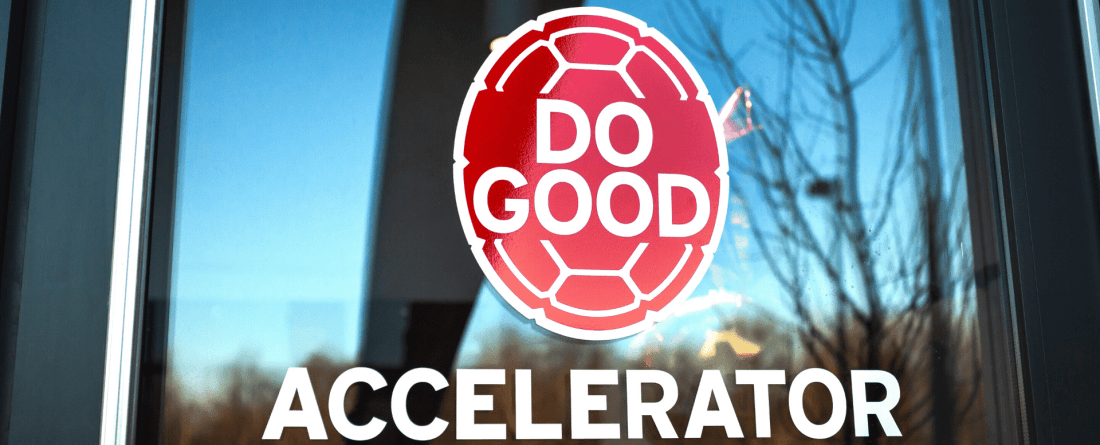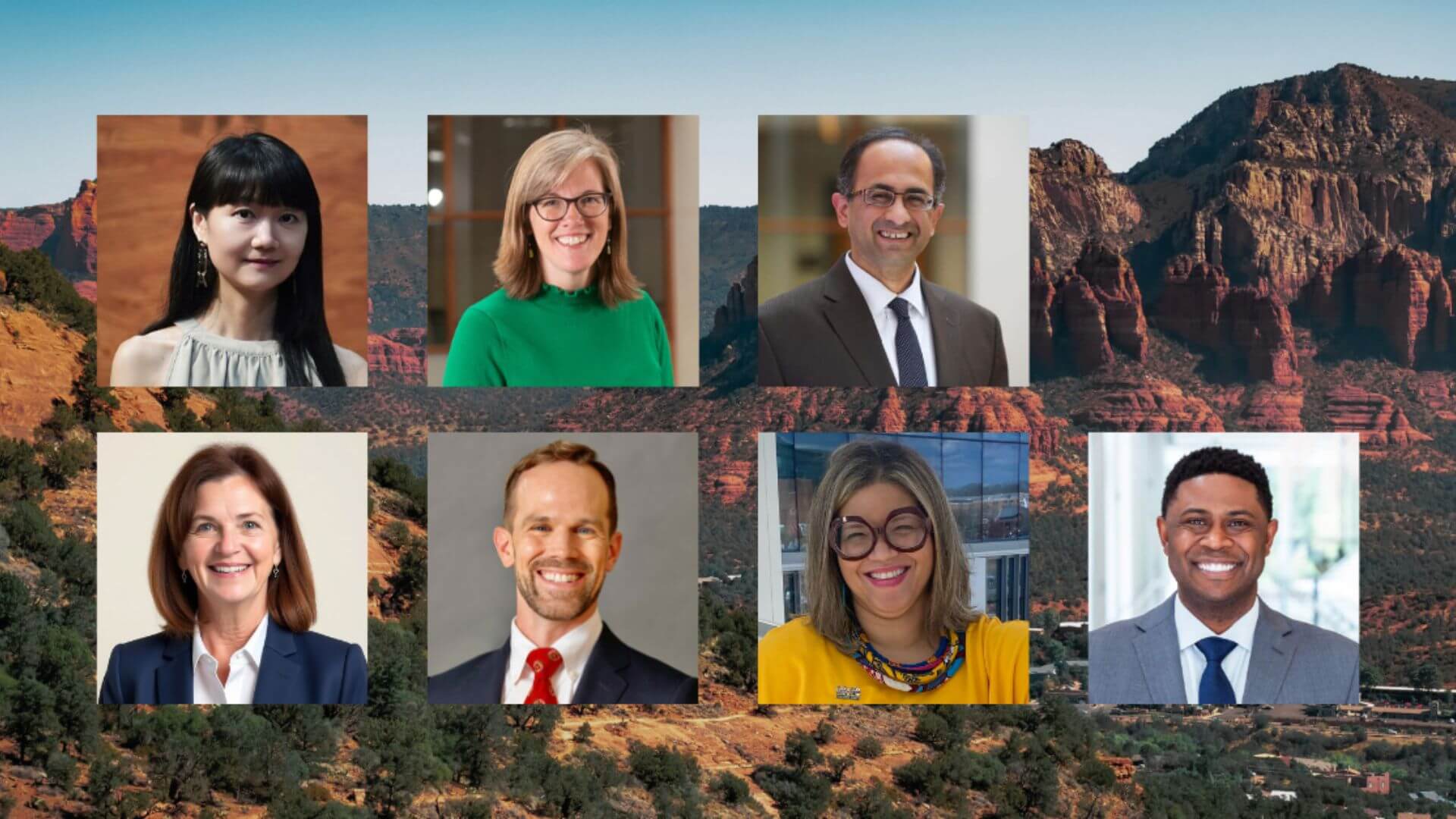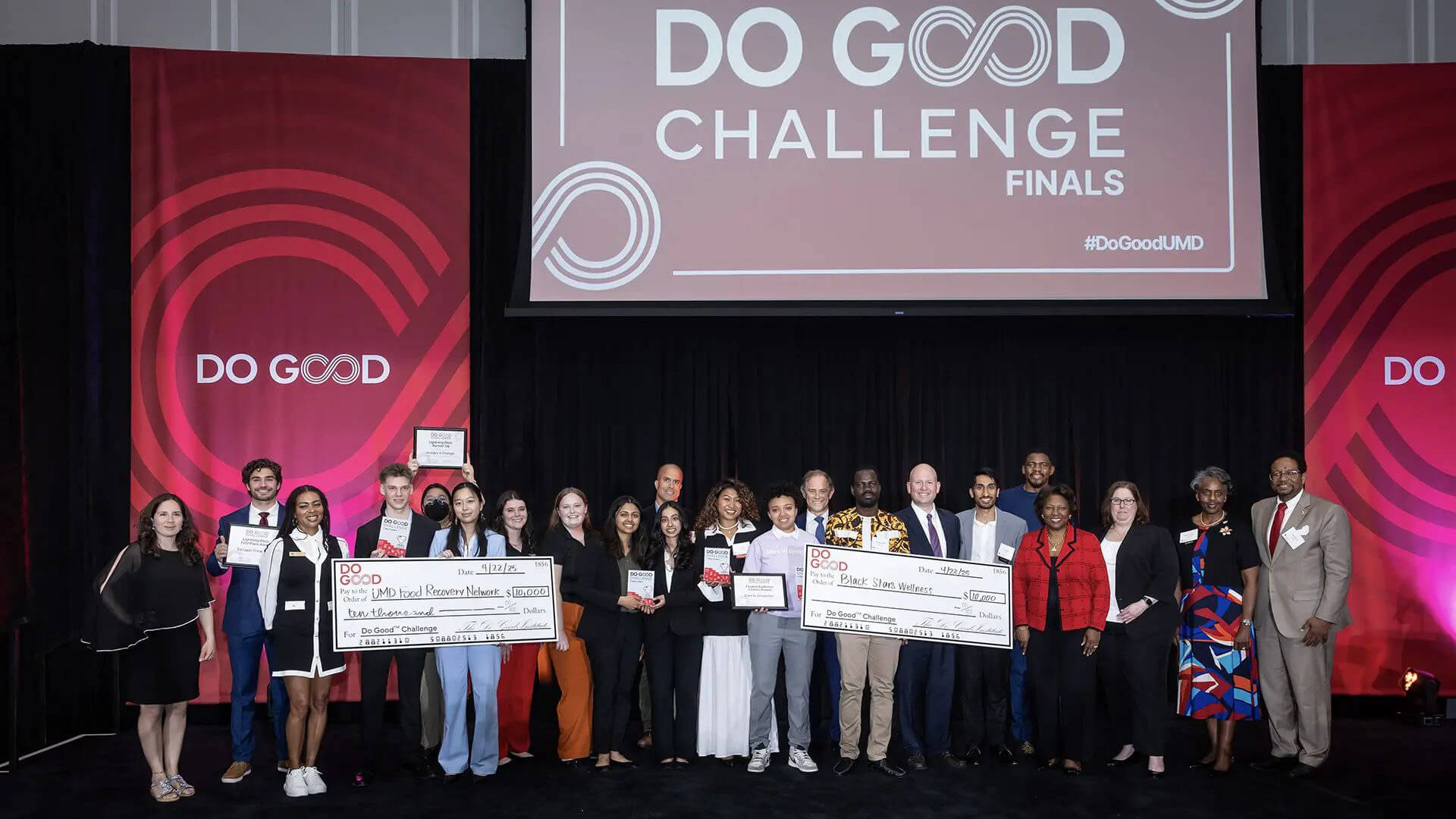
Eight skilled and passionate students have been selected as our newest Do Good Accelerator Fellows this spring! The Accelerator Fellows program provides students with resources and opportunities to explore, test, and scale up their idea, project, or venture while working with peers who are also tackling important social issues. Throughout the semester, students will meet with their peers, participate in 1:1 coaching sessions with field experts, engage in robust workshops, and immerse themselves in various group activities with industry leaders.
Spring Fellows are beginning week three of working with us on their projects. The transition back to in-person campus life has not been an easy one as students work to rearrange their schedules and their commutes. However, this transition isn’t stopping our Do Good students as they work passionately to take their projects to the next level. I always enjoy and admire the passion of our Do Good students and look forward to assisting them in their journeys to do good.Kisha Monroe Accelerator Manager
Fellows were selected after a competitive application process and will receive a stipend of $1,500 to support their work over the course of the program. From creating low-cost prosthetic devices to helping children develop emotional intelligence skills, read more about the impressive Spring cohort below:
Aishwarya Tare, Community gARden
Aishwarya is a senior information science major with a minor in art history. The gARden is an exploration of how human connection can be augmented without needing to be face to face. The lack of green spaces and access to nature for inner cities leads to diminished emotional health. gARden seeks to explore this particular phenomenon on college campuses that are seeing spikes in mental health issues. gARden utilizes existing green spaces on campuses and allows students to “grow” their garden virtually, while leaving their stories with it. The thoughts left behind would be entirely anonymous and can be text-to-voice or voice modulated. Students are able to anchor their stories to a specific plant in the garden. Because the plants have life cycles that are being technically rendered, stories disappear with the plants to make space for new ones. We are happy to welcome Aishwarya to the Fellows program.
Frederique Wandji, The Hopeful Project
Frederique is a senior community health major. The Hopeful Project provides kits containing non-perishable food items, hygienic products, first aid supplies and masks at food banks in the D.C. metropolitan area. In partnership with Audrey Awasom, founder of Noble Uprising, the Hopeful Project is creating accessible pantries containing hygienic products, food, household items and much more for women and children who are facing homelessness. We are excited to help Frederique scale up The Hopeful Project this semester.
Jennifer Noyes, Kappa Lambda Xi Multicultural Sorority, Inc.
Jennifer is a senior psychology and Spanish double-major. Kappa Lambda Xi Multicultural Sorority is actively working to coordinate their annual community event “Enlighten,” which will be returning to an in-person setting this semester for the first time in two years. Each year features a different topic relevant to marginalized groups on campus and in our local community, and in doing so they hope to uplift voices that often go unheard or silenced. The theme of this year’s “Enlighten” is Impostor Syndrome, specifically amongst first-generation students and students of color in higher education. We are thrilled to welcome Jennifer to the Fellows program.
Paniz Nafisi, Helping Hands Mobile Clinic
Paniz is a junior government & politics and general biology double-major. Mobile Clinic aims to address the issue of health disparities in Baltimore by providing basic health needs assessments to unhoused populations without the overwhelming cost of establishing a traditional clinic, but with the same range traditional clinics would provide. There exists a gap in the access to healthcare pipeline, exacerbated by homelessness in target populations. Many of these individuals are unable to seek or receive treatment for chronic conditions due to various reasons, including lack of insurance, low health literacy, linguistic barriers, and many more. The Mobile Clinic project seeks to address these issues by bridging the gap that currently serves as a barrier. We are looking forward to working with Paniz this semester as she scales up Mobile Clinic.
Mathew Parsons, North Star Creations
Mathew is a MBA student and founder of North Star Creations. North Star Creations aims to address the gaps in childhood emotional intelligence building. Their goal is to develop products that could combat the mental health crisis happening in the United States. North Star Creations creates products and characters that foster an inclusive environment for young children. By using books, dolls, puzzles, posters, and flashcards, kids can develop skills and grow their emotional intelligence to be ready for school. Focusing on mental health awareness makes it possible to create healthier learning environments. We are delighted to welcome Mathew back for his second semester with the Do Good Accelerator.
Sara Hart, Accessible Prosthetics Initiative at The University of Maryland
Sara is a junior bioengineering major. The Accessible Prosthetics Initiative works to increase access to prosthetic technology and care. API creates original upper-limb prosthetic designs and 3-D prints the devices with low-cost materials, making them more affordable. API also seeks to interact directly with the local amputee community to distribute those devices and collect first-hand feedback on what needs improvement. They also work to further their mission by educating and inspiring the next generation of engineers and prosthetists so that the field will grow and adapt to fully accommodate amputees of all economic status levels in the future. We are excited to see how Sara improves the Accessible Prosthetics Initiative this semester.
Sarika Kapadia, The Unforgotten Fund (UNFF): Addition of Library and Computer Lab to UNFF School in Zambia
Sarika is a freshman cell biology and genetics major. The Unforgotten Fund (UNFF) offers aid to a school in the Chingwere district of Lusaka in Zambia. UNFF provides a collection of math, science, history and literature books for students between the ages of 9-14, in order to encourage and inspire them to continue their education. We can’t wait to work with Sarika during her first semester with the Do Good Accelerator.
Zakariya Kmir, BIOKMIR
Zakariya is a senior economics major and the founder of BIOKMIR. BIOKMIR is developing a point-of-care diagnostic tool to detect multi-drug resistant tuberculosis (MDR-TB) infection. According to the Stop TB Partnership, only one in three people with drug resistant TB are being treated today and an additional 3 million people each year go without any TB diagnosis. Prevention methods and organized treatment strategies exist and are being applied globally, however, the combination of accessibility of personalized diagnostics and spikes in antimicrobial resistance have complicated efforts to eradicate tuberculosis. A point-of-care lab-on-syringe device offers an unparalleled platform for clinical applications. We are happy to welcome Zakariya to the Accelerator Fellows program.



